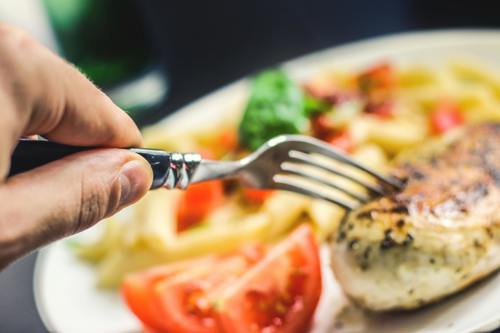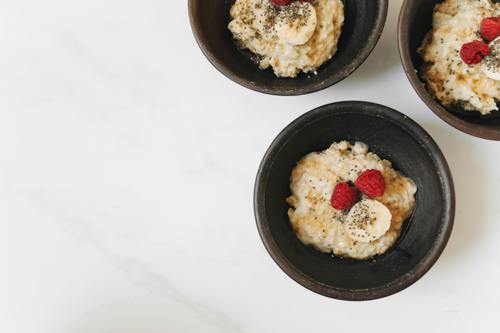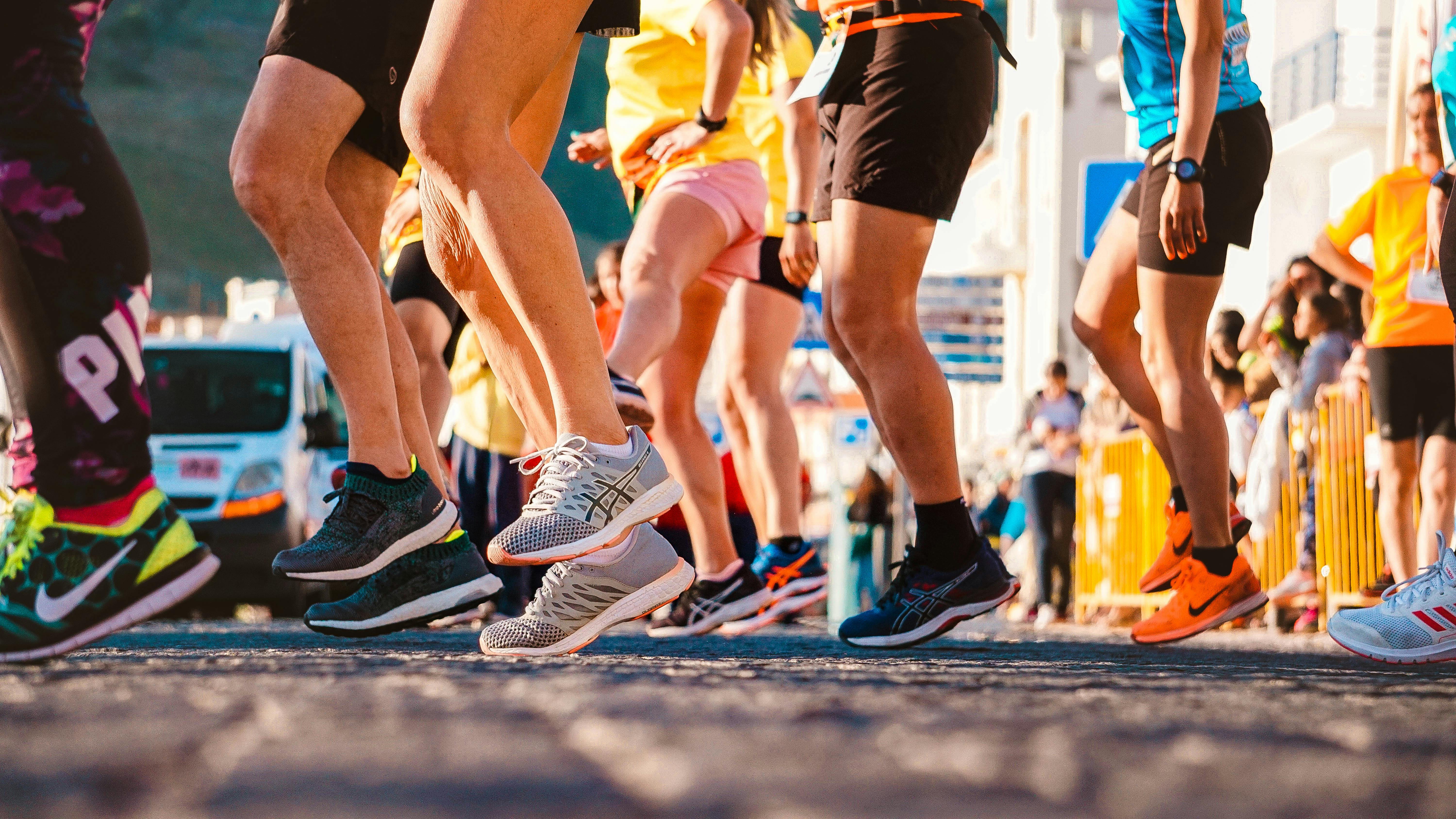Fuelling up for a half marathon takes just as much planning as your training runs. Whether you’re stepping up to the start line for the very first time, or you’ve got a collection of race medals hanging at home, knowing what to eat before a half marathon can make all the difference to how you perform on the day.
It’s not just about lacing up and logging the miles. A smart race strategy includes building endurance, maintaining form, and giving your body the right nutrition so it can go the distance.
Joining a Village Health and Wellness Run Club adds extra support, guidance, and community to help you fuel, train, and run your best race yet. We’ve pulled together some simple, effective tips on pre-race fueling to help you feel strong, steady, and ready to run your best half marathon yet.
What to Eat the Night Before Your Half Marathon
If you’re gearing up for a half marathon, don’t overlook the importance of nutrition alongside your training plan. The meals you choose in the weeks prior, the days leading up, and especially the night before can play a significant role in how you feel at the start line.
As you train, your body is exerting more effort and burning more calories, so it’s crucial to modify your nutrition to keep up with that increased energy output.
Carb Loading
One of the most effective strategies is carb loading. Carbohydrates are your body’s primary source of fuel, and topping up your glycogen stores in the 24–48 hours before the race can give you the steady energy you’ll need to carry you through all 13.1 miles.
A good rule of thumb is to aim for a higher intake of carbs spread evenly across meals and snacks, rather than trying to cram them all into one sitting.
Best Pre-Race Foods for Energy and Recovery
-
Classic choices like pasta, rice, potatoes, and fresh bread are easy on the stomach and great for stocking up your energy stores.
-
Some runners stick to a favourite pre-race meal that’s worked for them before—comfort and familiarity matter here just as much as fuel. On the flip side, fried foods and heavily processed carbs are best avoided, since they can leave you feeling sluggish.
-
While carbs are the star of the show, don’t forget about protein. Adding in moderate portions of lean protein—like grilled chicken, tofu, or tempeh—gives your muscles the tools they need to recover and stay strong.

Hydration
Hydration can’t be overlooked. Water and electrolytes should be part of your pre-race routine just as much as your meals.
Staying on top of fluids in the days leading up ensures you arrive at the start line energised, hydrated, and ready to run your best.
→ Read our marathon training tips and plan your race day.
What to Eat Race the Morning of Your Half Marathon
The meal you eat before the race can make a big difference in how you feel once you start running. You want to hit the starting line fuelled and ready, but not weighed down.
A good pre-race breakfast is built around carbohydrates for energy, with a little protein and fat to keep things balanced. Most importantly, stick with foods you’ve tested during training so there are no surprises on race day.
Breakfast Options to Eat Before Your Half Marathon
As a guide, aim for roughly half a gram to one gram of carbohydrate per pound of body weight, eaten a couple of hours before the race. If you’ve got more time to digest, leaning toward the higher end of that range will give you a stronger energy boost. Simple options work best:
-
A bowl of oatmeal with sliced banana, nuts, and a drizzle of honey is a reliable favourite
-
Another tried and true option is a toasted bagel topped with nut butter and banana
Both will give you a mix of quick and long-lasting carbs, with just enough protein and fat to keep your energy steady.
And don’t forget about hydration. Drinking 10 to 20 ounces of fluid about an hour before the start will help you feel prepared without feeling sloshy once you begin running.

What to Eat During Your Half Marathon
You may start your run feeling full of energy, but as your glycogen stores begin to deplete, you’ll likely notice your muscles tiring and a heaviness creeping in, which can slow your pace. It’s important to refuel early before your energy starts to wane.
Plan to consume carbohydrates, sodium, and fluids throughout your race to keep your energy levels and endurance up. Aiming for about 30 grams of carbs every 30 to 40 minutes is a solid target. If you expect to complete your half marathon in under 90 minutes, typically one mid-race fuel stop will be sufficient.
Snacks to Carry During Your Half Marathon
-
While there will be water stations along the marathon route, investing in a hydration belt and training with it can help you get used to the feel.
-
Energy gels or chews are lightweight and digest quickly while you’re on the go.
-
Alternatively, an energy bar can help replenish your energy
Incorporate these snacks into your training runs to understand how your body reacts at different points and what your stomach can tolerate best to help you reach the finish line. Don’t wait until race day to discover what works for you.
Test your fuelling strategy during long runs and tempo workouts to fine-tune both the type of fuel and the timing. And always wash down concentrated fuels with fluids to aid digestion and absorption.
Foods to Avoid Before a Half Marathon
It’s essential to start focusing on your diet and hydration in the weeks leading up to the event. Make sure your body is well hydrated and avoid heavy, spicy or greasy foods several days before the race. You should also avoid trying new or unfamiliar foods right before or on race day, as they can cause digestive issues, bloating, or discomfort while running.
High Fibre Foods
Fibre is great for everyday health, but right before a race it can cause bloating, gas, and digestive discomfort. Opt for easy-to-digest carbs like white bread, rice, pasta, bananas, or applesauce instead.
Foods to limit:
-
Beans and lentils
-
High-fibre cereals
-
Nuts and seeds
-
Dried fruits
Fatty Foods
Heavy fats slow digestion and can leave you feeling sluggish. Stick with lean proteins and healthy fats, such as chicken, turkey, fish, eggs, or avocado.
Foods to limit:
-
Cheese
-
Butter
-
Cream
-
Bacon
-
Sausage
-
Rich sauces
Spicy and Heavily Seasoned Foods
Spicy dishes and strong seasonings can irritate the stomach and trigger acid reflux, heartburn, or indigestion. It’s best to avoid these foods in the days leading up to your race to ensure your stomach stays comfortable and your energy levels remain steady.
Avoid:
-
Curries
-
Hot peppers
-
Garlic and onion
-
Chilli
-
Salsa
-
Vinegar
-
Soy sauce
Excessive Caffeine
While caffeine can boost focus and endurance, too much may cause dehydration, jitteriness, or an elevated heart rate. A small, familiar cup of coffee or tea is fine, but avoid trying new caffeinated products on race day.
Limit:
-
Coffee
-
Tea
-
Energy drinks
-
Soda
-
Chocolate

What to Eat After a Half-Marathon
After a half marathon, your body needs to refuel, rehydrate, and repair. Focus on nutrient-dense foods for the majority of your intake, prioritising carbohydrates, protein, hydration, and anti-inflammatory foods.
Don’t forget to celebrate your accomplishment with a small indulgence. After all, you’ve earned it!
Post-Race Recovery Foods
Focus first on complex carbohydrates to restore glycogen. Good options include:
-
Oatmeal, quinoa, sweet potatoes, fruits, and legumes
-
Pairing carbs with protein—around 20–25 grams—to repair muscles and support recovery.
-
Greek yoghurt, eggs, protein shakes, or nuts are easy choices right after the race.
-
Rehydration is crucial. Even if you drank during the run, you’ll still need fluids and electrolytes. Water, coconut water, fruits like watermelon and oranges, leafy greens, potatoes, and lightly salted nuts help replace lost sodium, potassium, and magnesium.
-
Anti-inflammatory foods such as fatty fish, berries, walnuts, flaxseeds, green vegetables, and tomatoes can reduce soreness and speed recovery.
→ Discover how to refuel after a gym workout.
Ready to Go the Distance?
Joining a Village Health & Wellness Run Club isn’t just about tracking your miles — it’s about preparing for your best race yet. Whether you’re hitting the trails, running on the road, or doing interval workouts, being part of a supportive community helps you focus not only on training but also on fueling your body the right way before your half marathon.
Our experienced coaches and friendly members provide guidance on pre-run nutrition, helping you understand what to eat for optimal energy, endurance, and performance. Beginners can also explore run club guidance for support.
Sign up for a Village Gym membership to enjoy personalised training, group runs, and a community that supports you every step on your half marathon journey.

